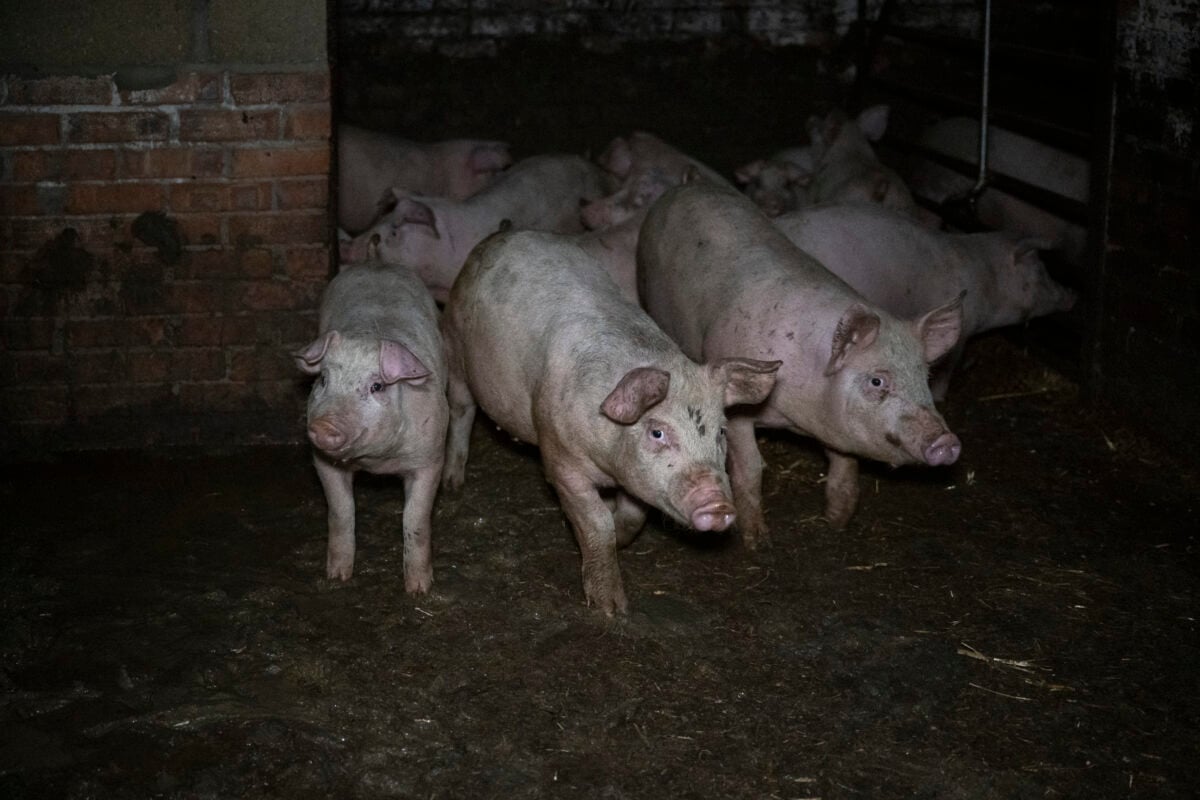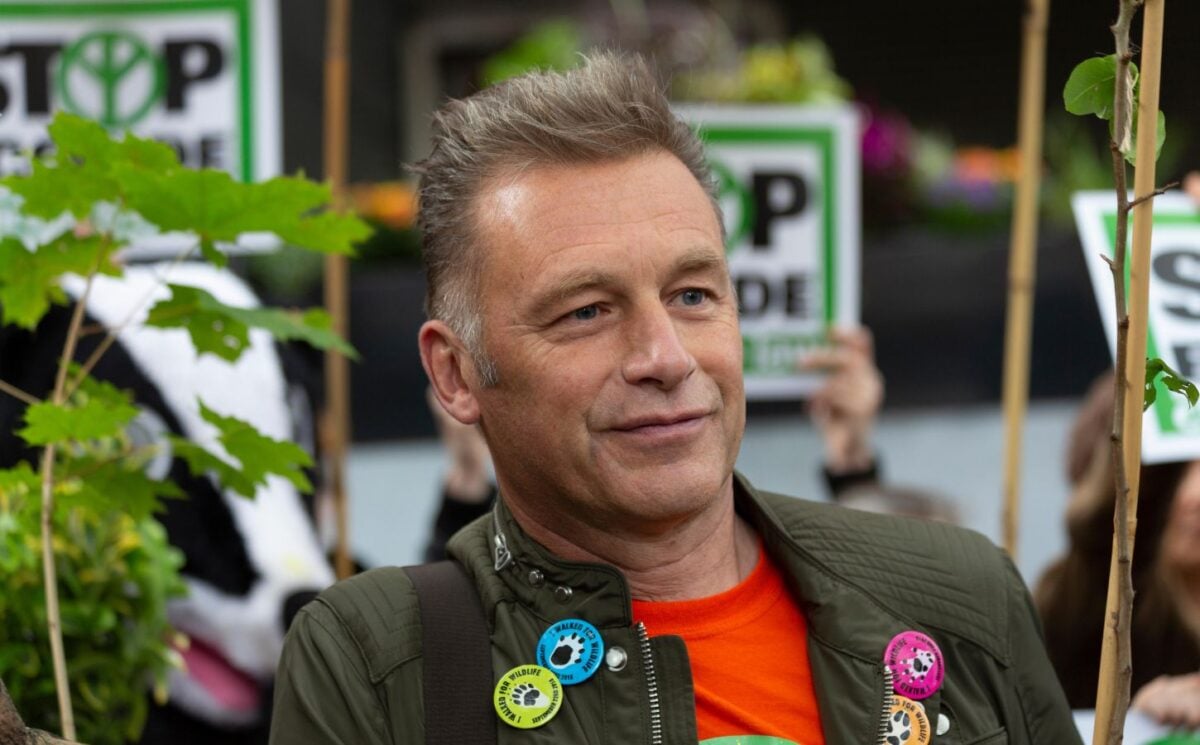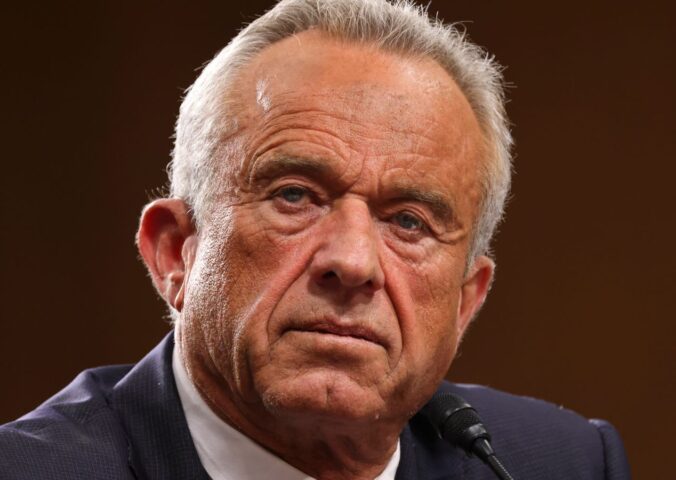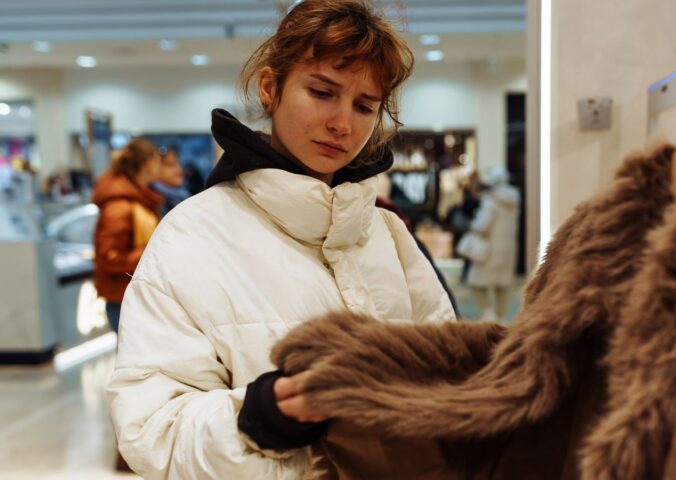Chris Packham has described footage from RSPCA Assured animal farms as “utterly indefensible” following a massive undercover investigation.
Read more: ‘High Welfare’ RSPCA-Approved Scottish Salmon Linked To Animal Abuse
Undercover footage obtained by Animal Rising revealed the extent of standards health and welfare violations at RSPCA Assured farms. In an interview with The Sunday Times, Packham, who is president of the RSPCA, has called on the charity to immediately suspend the scheme.
“I think the footage is utterly indefensible,” Packham, who eats a plant-based diet, told the publication “I know you are going to ask me whether [these RSPCA Assured schemes] are deliberately misleading or defrauding the public because they come with a brand which implies that there is a standard of welfare that the public would expect. What we’ve seen in that footage is not a standard of welfare that any member of the public would accept. It’s not acceptable.”
The RSPCA refused to suspend the scheme, according to The Times, as it said it would “risk leaving millions of farm animals with even less protection.”
Widespread violations
Through 60 investigations across a four month period, Animal Rising obtained videos and photographs from 45 animal farms across the UK. In a report published Sunday, Animal Rising says it found animals suffering on every farm. A total of 280 breaches of legal standards and 94 breaches of codes of practice for animal welfare were documented. Among the worst and most frequent breaches were animals left dead and dying inside barns.
RSPCA Assured is considered the gold standard of farm assurance schemes. Animals raised on certified farms are supposed to be guaranteed more space, enrichment, and “humane” handling and slaughter. The RSPCA says that the scheme doesn’t allow factory farming. But Animal Rising says that many of the farms were highly intensive, with at least one licensed to keep up to 64,000 laying hens indoors.
Read more: Investigation Finds Dead Cows ‘Eaten To The Bone’ At Red Tractor Dairy Farm
According to Ayesha Smart, specialist barrister in animal welfare and Crown Court Judge, some of the farms don’t comply with basic legal standards of animal welfare.
Severe neglect

Animal Rising’s report details some of the worst cases of neglect and breaches of RSPCA Assured standards its investigators found. They investigated farms rearing pigs, laying hens, chickens for meat, and salmon and trout.
Pigs on one farm in Somerset were found to be dying from viral and bacterial infections. On a salmon farm in Scotland, salmon had eyes and body parts missing and suffered from infestations of sea lice. On a Norfolk chicken farm, live chicks pecked at dead ones who had been left on the barn floor, while many were dying from starvation and dehydration.
Farm environments lacked many of the features that RSPCA Assured is supposed to guarantee, such as enrichment to alleviate stress and boredom. Chicken catches were also seen grabbing and throwing hens by their legs, though as long as it is both legs this is allowed under the scheme’s standards.
Pig farms had the highest number of legal violations followed by egg farms. On nine of 12 pig farms investigated, pigs had docked tails indicating routine mutilation, which is technically illegal. Dr Alice Brough, a former vet in the pig industry, notes in the report that tail docking is supposed to be a last resort to prevent tail biting. “If the standards were indeed ‘high welfare’, there should be no need to mitigate vice behaviours like tail and ear biting,” she writes.
Lack of inspections
Smart, who reviewed all the evidence gathered by Animal Rising, said that it’s clear the farms are failing the animals. “[F]arms simply do not adequately inspect these animals, ensure that are provided with a suitable living environment or address their pain or suffering in a timely manner,” she said.
There is also too little oversight of farms. “Few UK farms are actually inspected by an official regulatory body each year, and this clearly needs to change to ensure that there is compliance with the basic requirements,” Smart said. “Had it not been for this investigation, then the state of these farms on the ground would not be exposed.”
Read more: Think Free Range Eggs Are Ethical? Investigation Exposes Reality Of ‘Cage-Free’
RSPCA Assured farms are supposed to receive an inspection “at least once a year” according to the scheme. But Brough said that she had seen many instances of animal suffering in pre-arranged RSPCA inspections.
A 2022 report by Animal Equality (AE) showed that even when legal violations are discovered on farms, few are prosecuted. Only farms considered “high-risk” are prioritized by government inspectors, meaning most are not checked. AE found that fewer than three percent of UK farms were inspected between 2018 and 2021. Inspections only occurred at half of farms about which a complaint had been made. Less than one percent were eventually prosecuted, even though legal non-compliance was evident on a third of those inspected.
Not just “one bad apple”
Animal Rising’s investigation is one of many that have been conducted into RSPCA Assured farms over the years. There have been at least 33 carried out by animal protection groups over 16 years with numerous cases of animal suffering and abuse documented.
Taken together, Animal Rising says this shows that it’s never a case of “one bad apple” as RSPCA Assured often claims. Animal Rising is calling on the RSPCA to ditch the scheme and take a firm stance on protecting animals.
In a statement to Plant Based News, an RSPCA spokesperson said: “We take all allegations extremely seriously. As soon as we received the footage we launched an immediate, urgent investigation and are looking into the allegations as a priority. We are unable to comment any further whilst our enquiries are ongoing.
“RSPCA Assured was set up solely to improve farmed animal welfare and any allegations of poor welfare, or breaches of the RSPCA welfare standards, are very upsetting and always urgently looked into.
“We ask that anyone with concerns about an animal on an RSPCA Assured certified farm to always report it immediately, so that we can act swiftly. Any delay in reporting concerns means there is a significant risk of an animal being left to suffer unnecessarily.”






